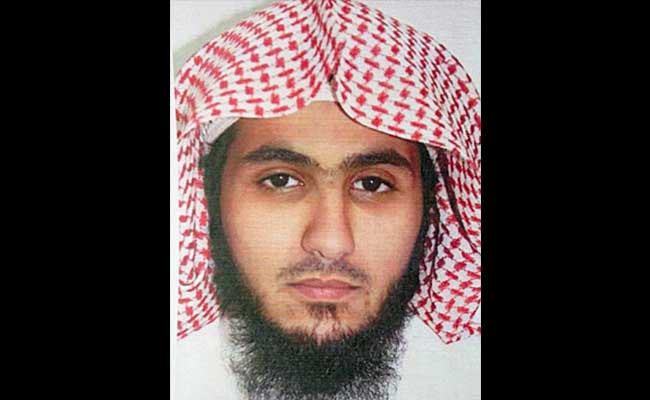
Friday's attack also wounded 227 worshippers in the first bombing of a mosque in the tiny Gulf state, and Kuwait's security services have vowed to catch and punish those responsible.
The Islamic State group's Saudi affiliate, the so-called Najd Province, claimed the bombing and identified the assailant as Abu Suleiman al-Muwahhid.
Kuwait's interior ministry gave the real name of the attacker as Fahd Suleiman Abdulmohsen al-Qaba'a, in a statement carried by the official KUNA news agency.
It said that he entered the country through Kuwait Airport at dawn on Friday, the same day of the bombing.
A handout photograph of Qaba'a showed a young bearded man wearing a traditional Saudi headdress.
Earlier on Sunday, the ministry said that security services arrested the driver of the car that transported the bomber to the Al-Imam Al-Sadeq mosque in Kuwait City.
He was named as Abdulrahman Sabah Eidan Saud and described as an "illegal resident" born in 1989.
Authorities on Saturday arrested the car owner, Jarrah Nimr Mejbil Ghazi, born in 1988, and also listed as a stateless person.
Authorities have also detained the owner of a house used as a hideout by the driver, describing the owner as a Kuwaiti national who subscribes to "extremist and deviant ideology".
‘Illegal resident’ is the official term used in Kuwait to describe stateless people, locally known as ‘bidoons’, who number around 110,000 and claim the right to Kuwaiti citizenship.
Alleged IS executioner Mohammed Emwazi, who became known by media as ‘Jihadi John’, was born in Kuwait to a stateless family of Iraqi origin which later moved to London.
Local media said 18 of those killed were Kuwaitis, three Iranians, two Indians, one each from Pakistan and Saudi Arabia and one bidoon.
The breakthroughs in the bombing probe came a day after thousands of Kuwaitis braved scorching summer heat on Saturday to attend the funerals of 18 victims.
Mourners turned out in large numbers for the funerals despite the Ramazan daylight fast and as temperatures hit 45 degrees Celsius.
"This crowd is the proof that the objectives of the criminal act have failed," said parliament speaker Marzouk al-Ghanem.
The mourners, who included women clad in black Islamic dress, carried Kuwaiti flags and black and green banners bearing religious slogans.
The health ministry said that 40 wounded are still being treated in hospital.
In Iraq, relatives wept as the coffins of the eight remaining victims arrived and were taken inside the airport terminal at Najaf, an AFP journalist said.
They were buried at dawn on Sunday in Najaf's Wadi al-Salam cemetary, according to deputy provincial council head Luay al-Yasiri.
"We want to deliver a message to Daesh (an Arabic acronym for IS) that we are united brothers among the Sunnis and Shias, and they cannot divide us," said Abdulfatah al-Mutawwia, a Kuwaiti living in Iraq who lost his brother in the bombing.
Tens of thousands of people headed by the emir offered condolences late Saturday to relatives of victims at Kuwait's Grand Mosque, the largest place of worship for Sunni Muslims, in a show of solidarity.
The cabinet announced after an emergency meeting on Friday that all security agencies and police had been put on alert to confront what it called "black terror".
Justice and Islamic Affairs Minister Yacoub al-Sane said additional security measures will be taken around mosques and places of worship.
The emir, government, parliamentary and political groups and clerics have all said Friday's attack aimed to stir up sectarian strife in the emirate.
In the first working day after the bombing, Kuwait Stock Exchange dropped just 0.75 percent and was trading on 6,165.22 points after one hour of opening.
1719315628-0/BeFunky-collage-(8)1719315628-0-405x300.webp)


1731329418-0/BeFunky-collage-(39)1731329418-0-165x106.webp)




1730959638-0/trump-(19)1730959638-0-270x192.webp)








COMMENTS (7)
Comments are moderated and generally will be posted if they are on-topic and not abusive.
For more information, please see our Comments FAQ